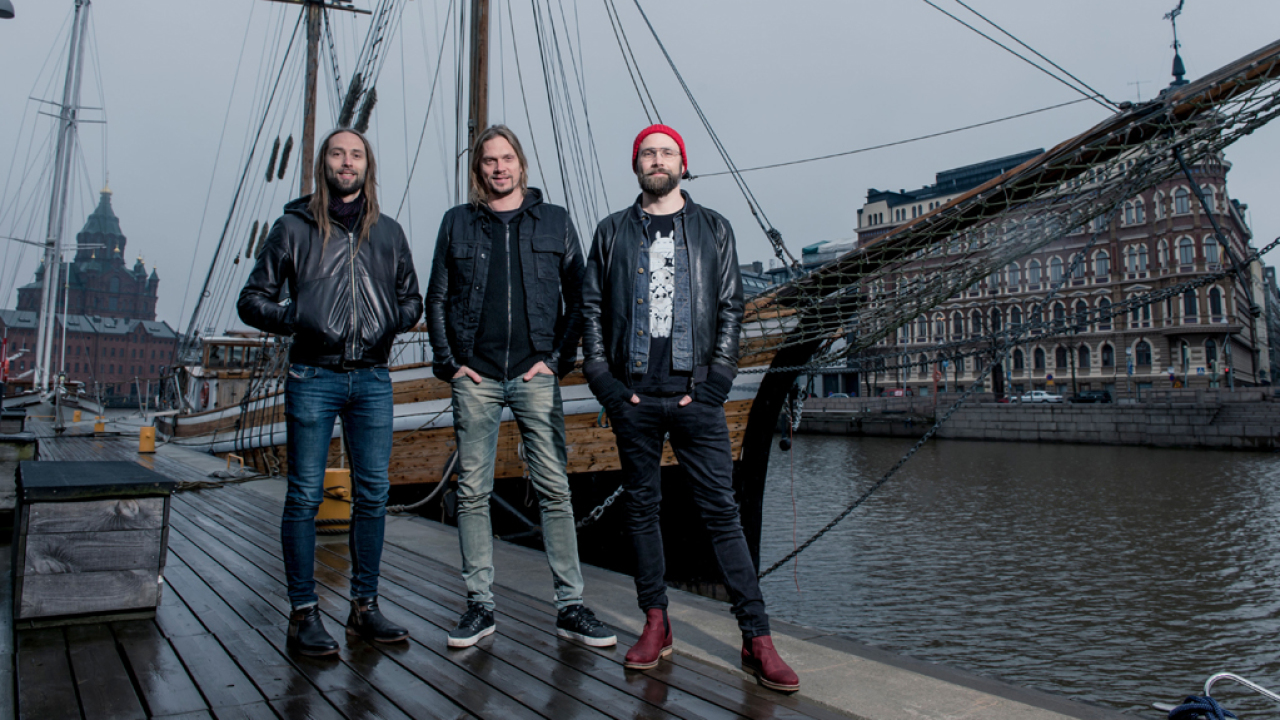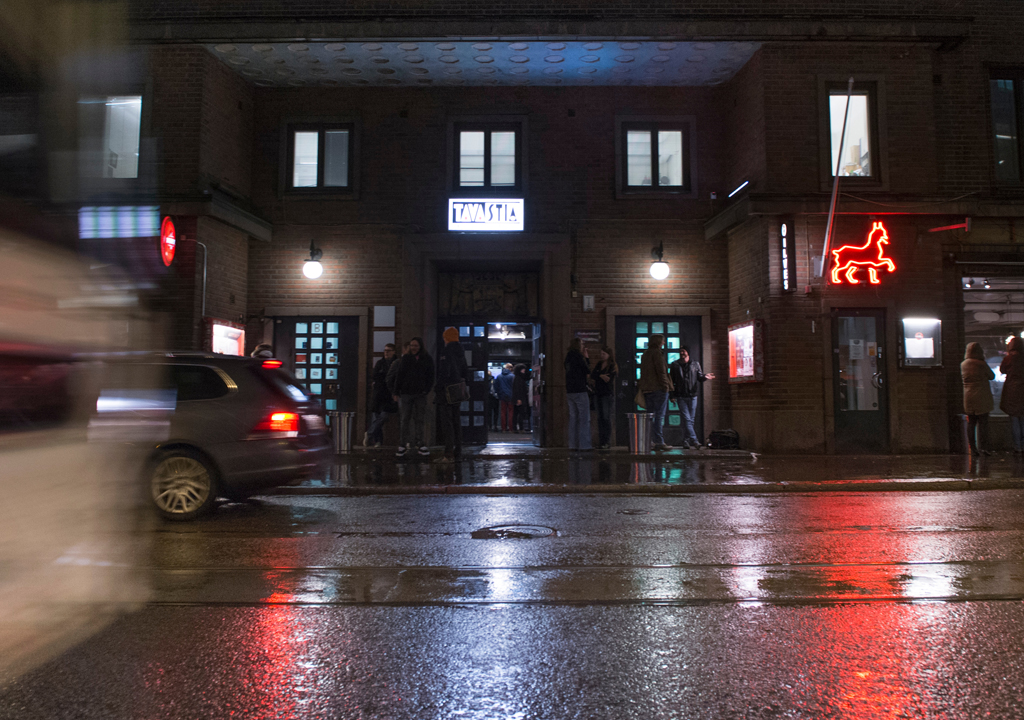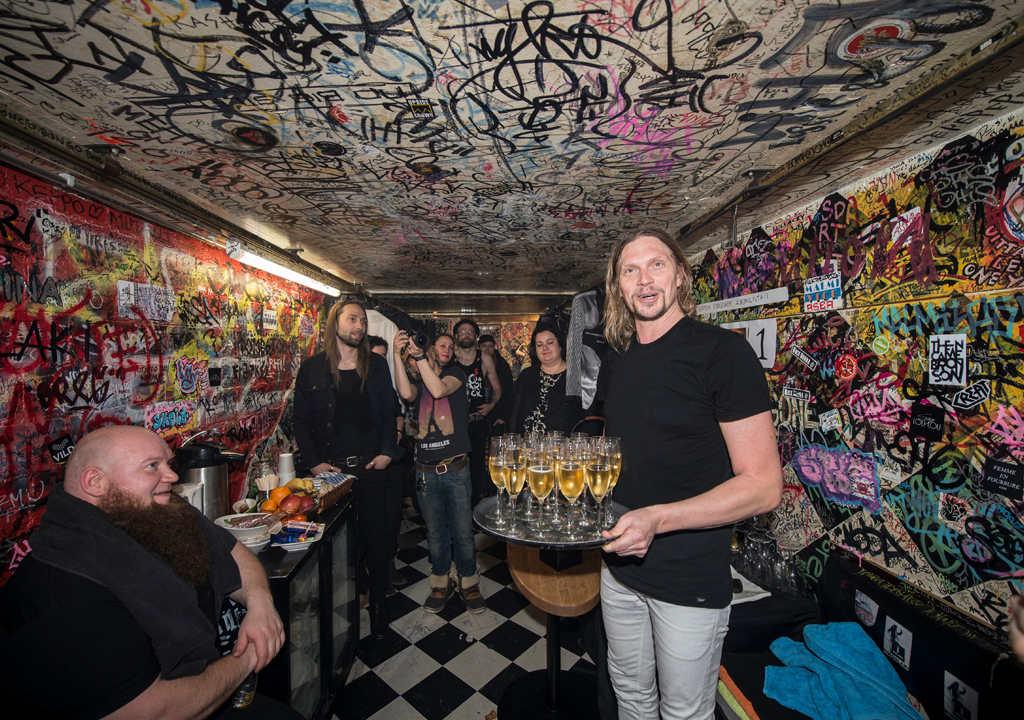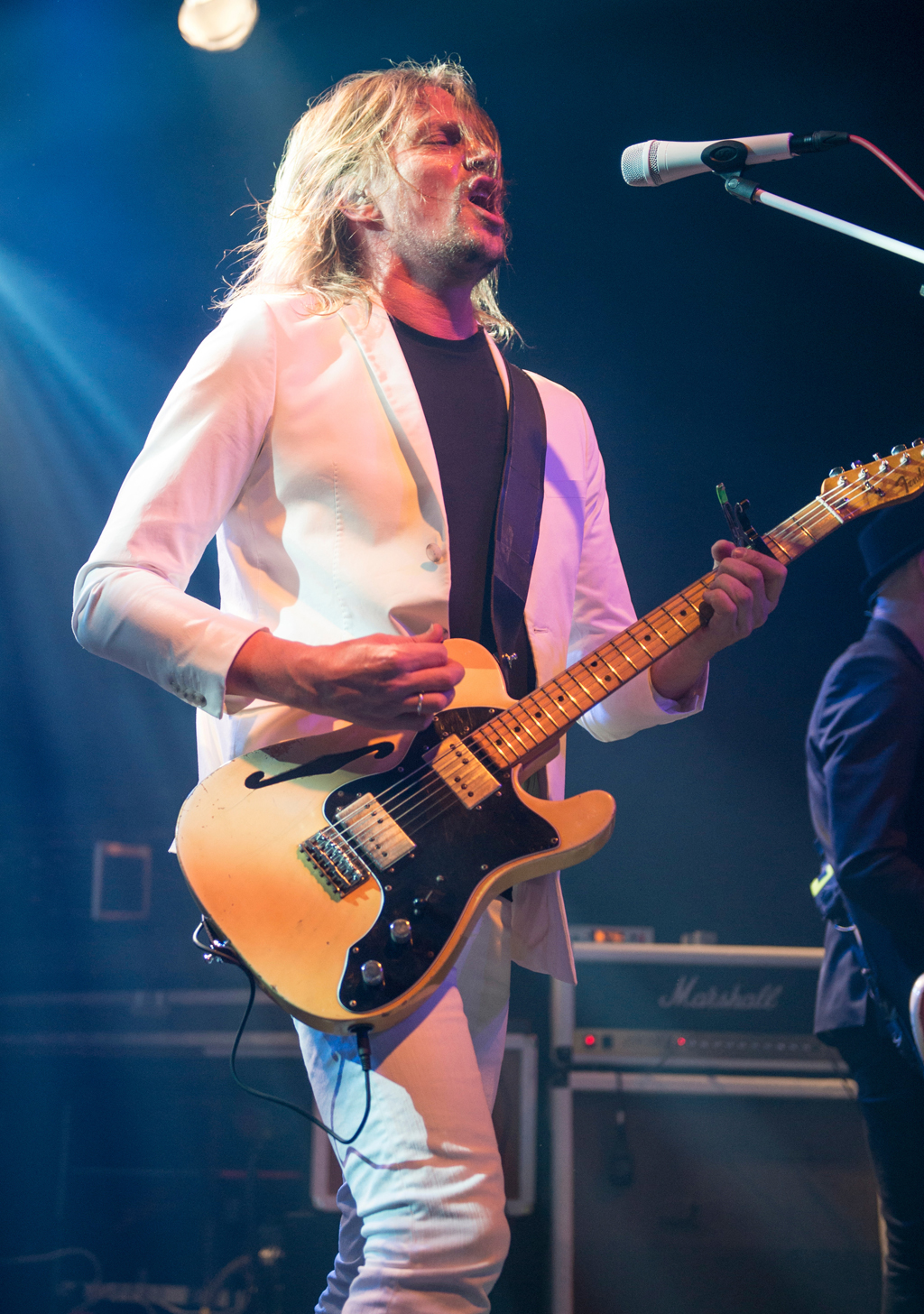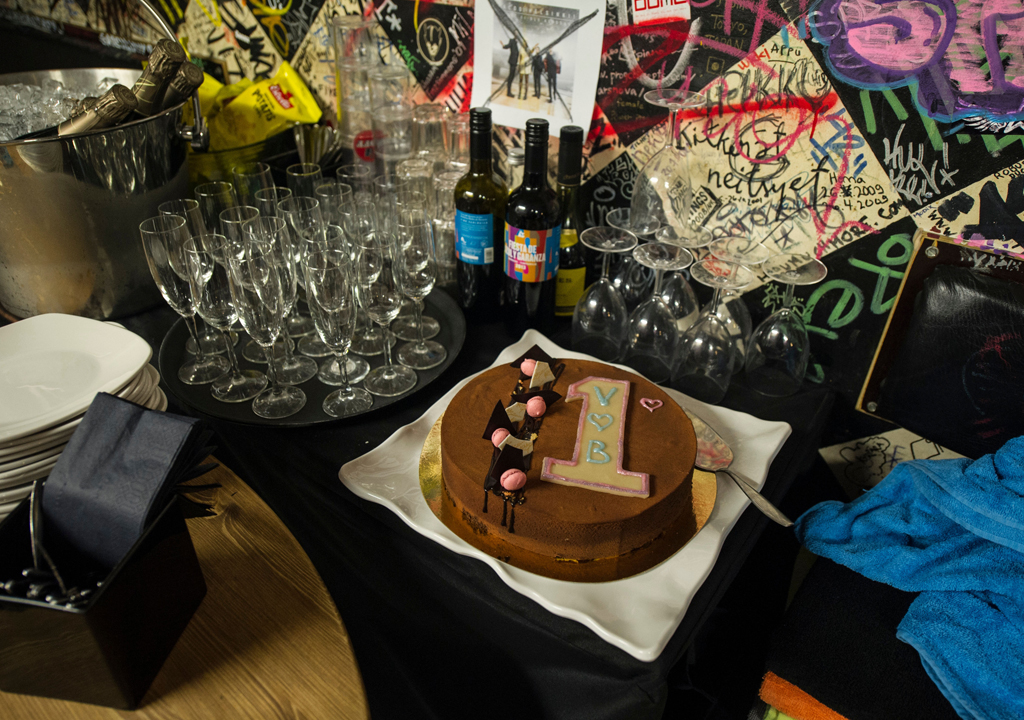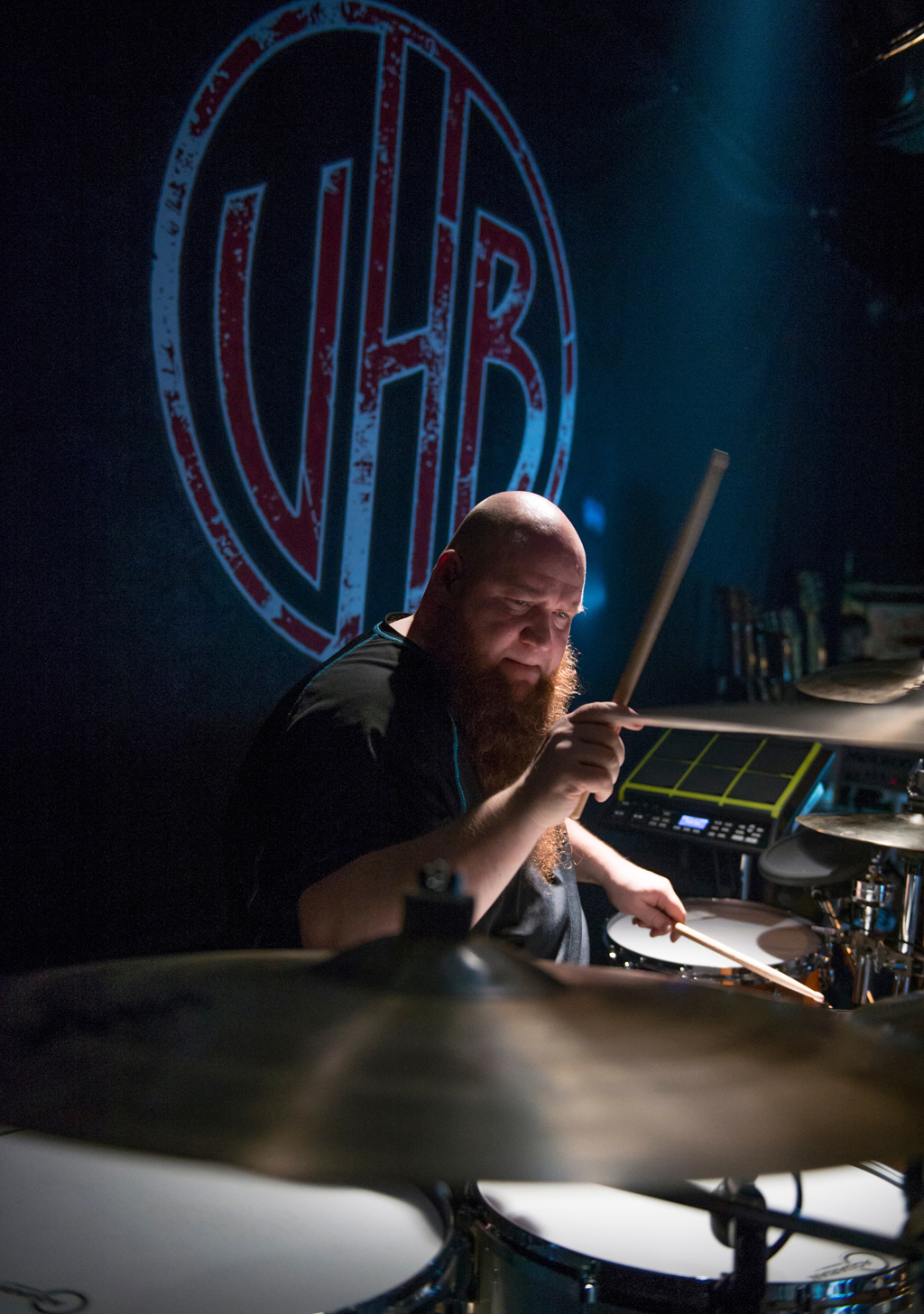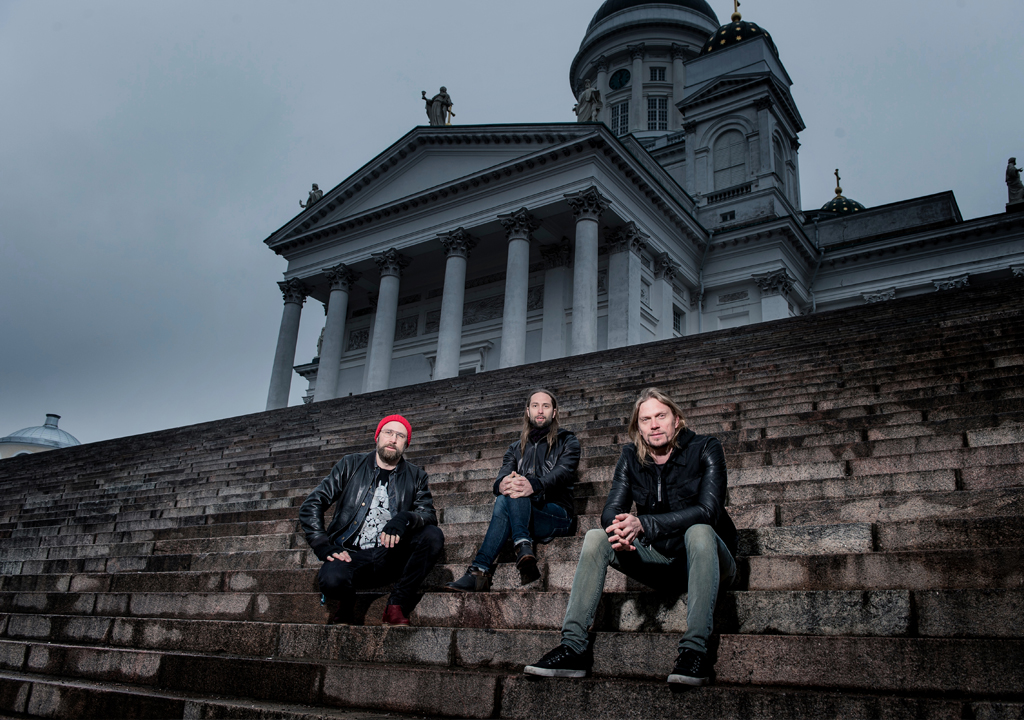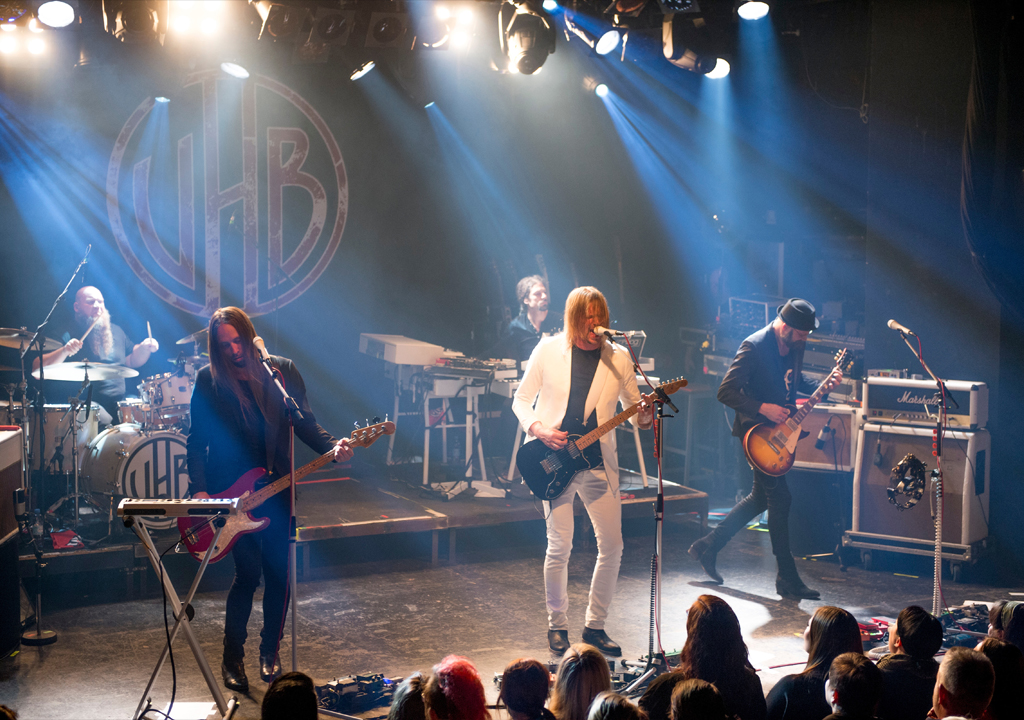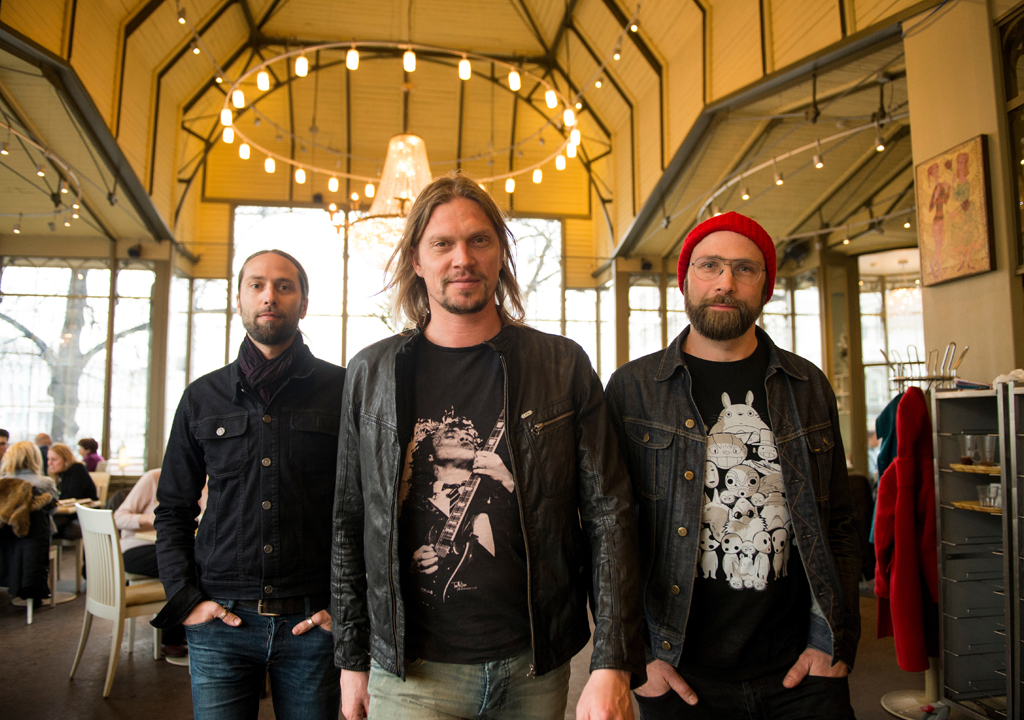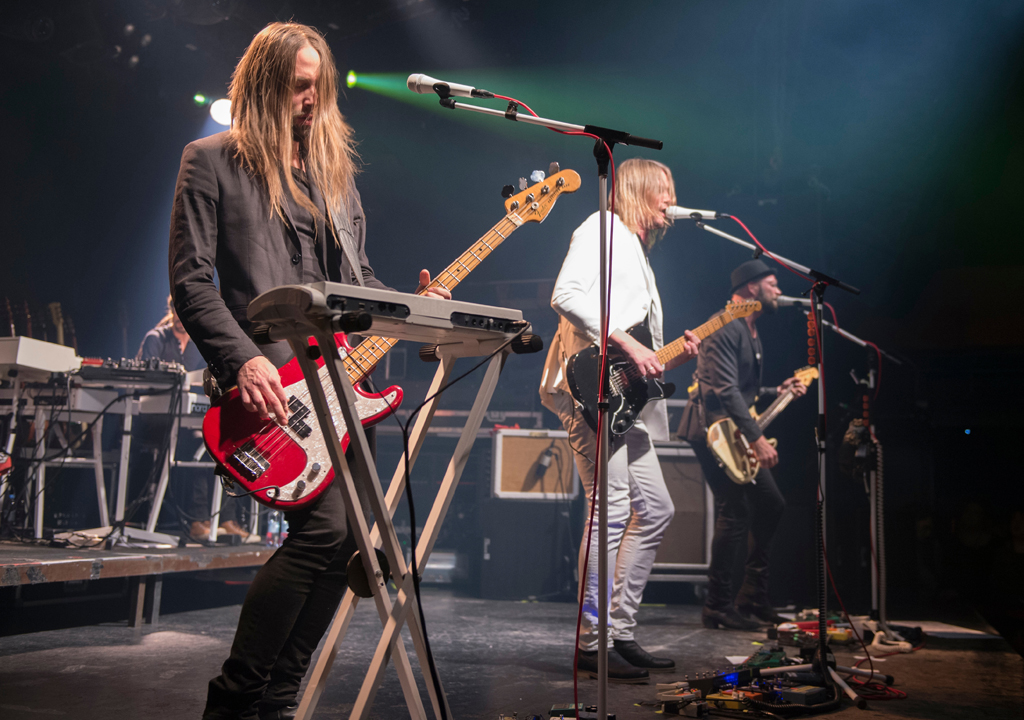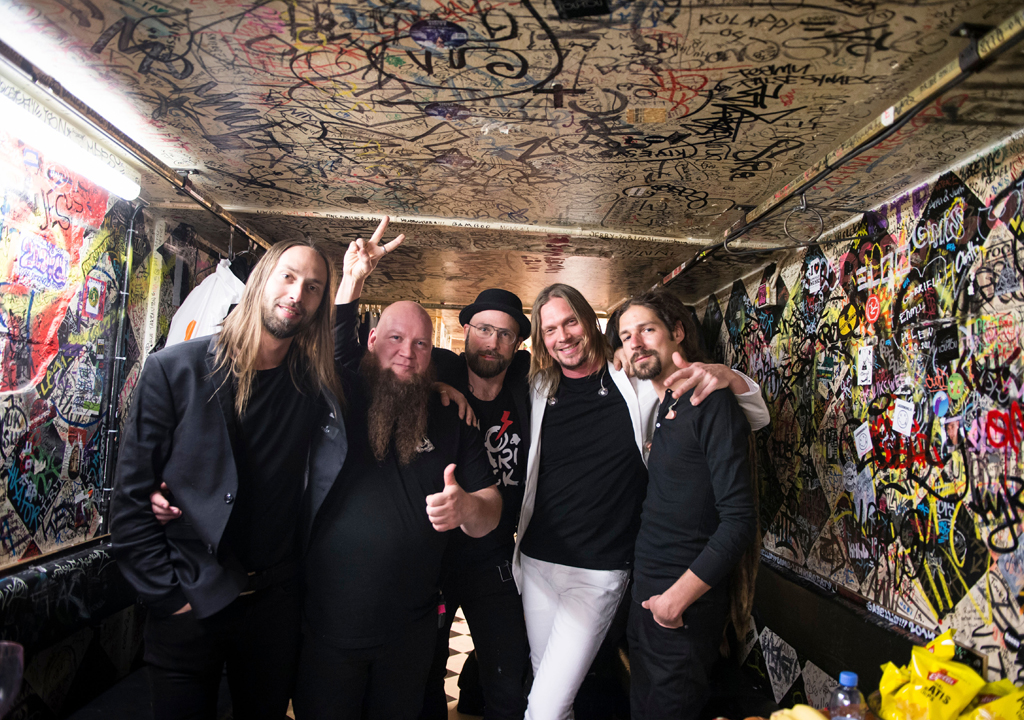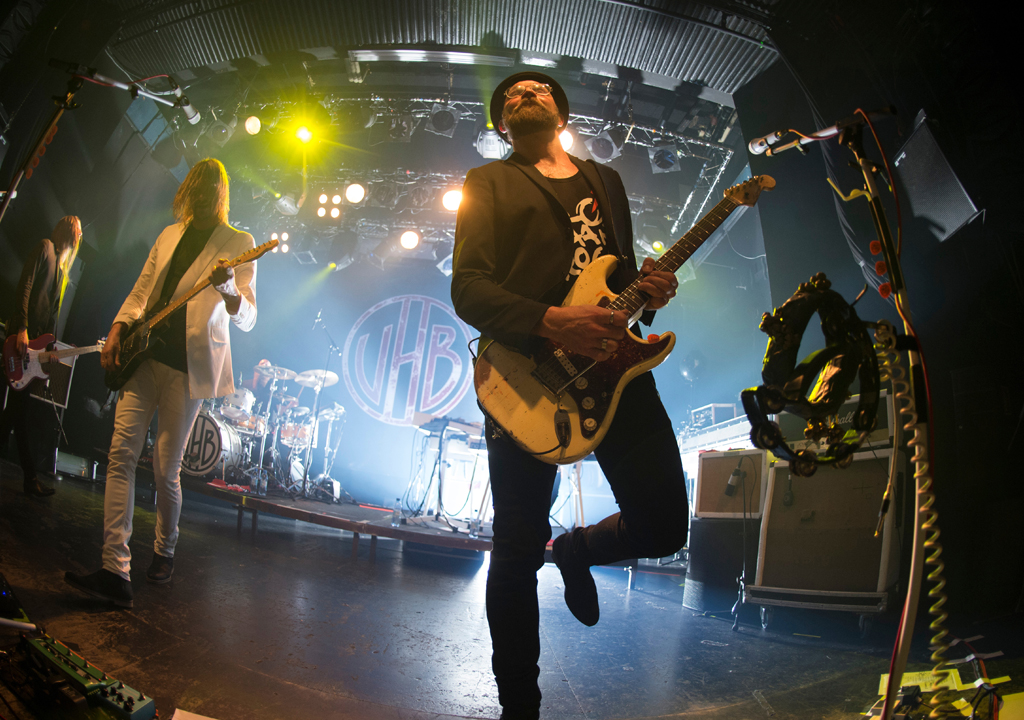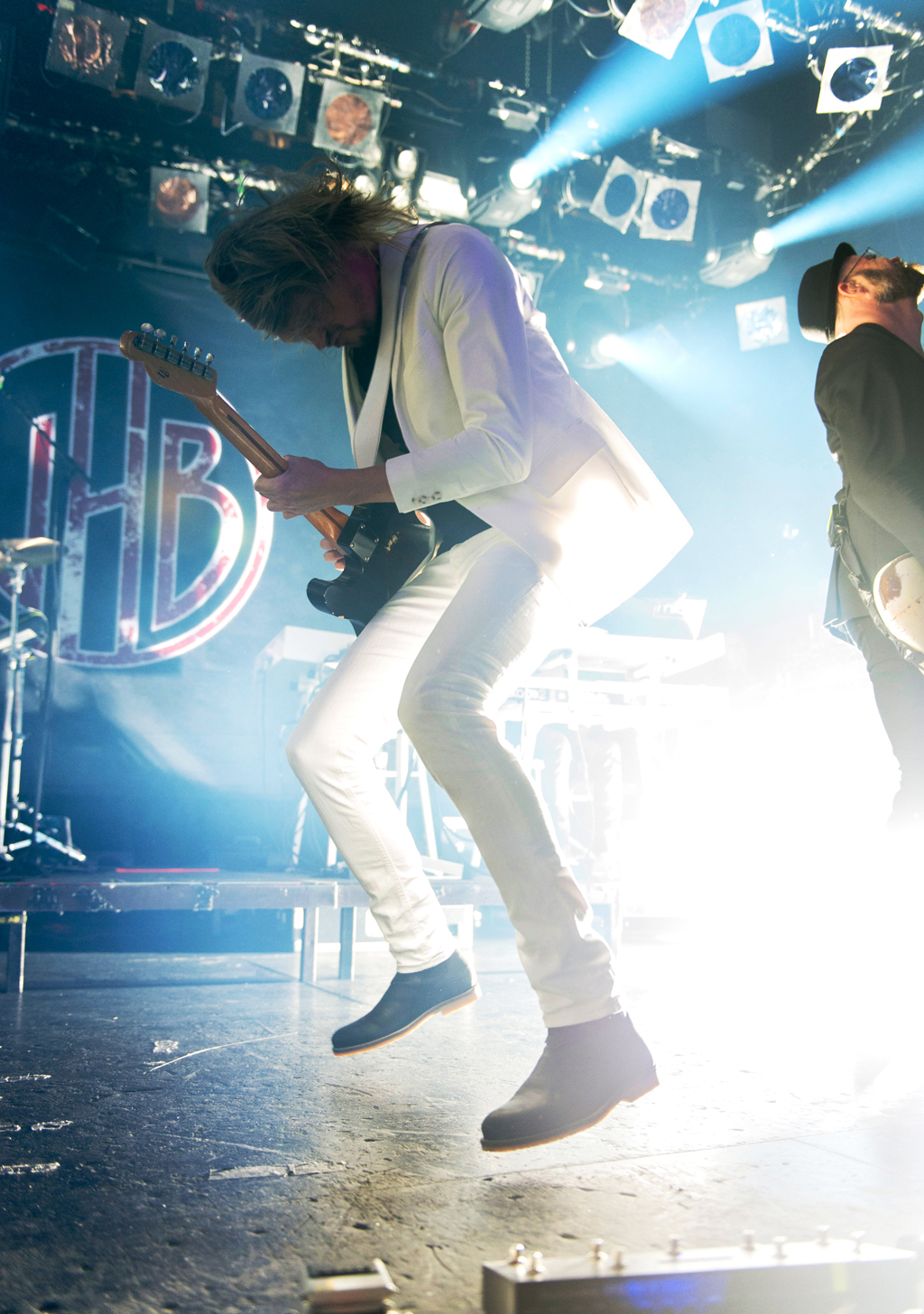Helsinki in March is like a foggy marble, dropped in the Baltic Sea. Drizzly, and dark by midday, it’s a city of surreal contrasts. Grey concrete architecture and neoclassical cathedral domes loom above a misty harbour, where distant oil tankers offset old wooden boats. It’s a place you imagine producing Stratovarius, Children Of Bodom, HIM and other metal Finns. And the Moomins.
Today, however, we’re with the country’s rock flavour of the moment, the Von Hertzen Brothers – fresh from topping the Finnish charts with their sixth LP, New Day Rising. “We’re doing well. We have good music, the band’s great… we are bound to be a success story, right?!” frontman/guitarist Mikko von Hertzen says, laughing. “That’s a very untypical Finnish attitude, to think: ‘Okay, we’re going to make it.’ Because usually Finns are more pessimistic, having beers and going: ‘Oh, this is shit…’”
A beaming, burly Nordic man, Mikko has the look of someone just returned from chopping down conifers. You feel you could have known him for years. Creatively the “pop guy” of the group, he’s loomingly tall yet only slightly dwarfs his bandmates. Kie (the eldest, “rockiest” sibling) makes an unlikely guitar hero, friendly and funny in glasses and a red woolly hat. The bass-playing youngest, Jonne, is the quieter, seriously spoken, “indie/ambient one” – quietly fashionable in skinny jeans and leather jacket, like an approachable Dazed & Confused model. Backstage before last night’s sell-out home-town gig, the Von Hertzens were instantly very genial hosts. Posing for photos in the city they’re similarly chipper despite the teeth-chattering weather. Yet when sitting for our post-shoot interview they’re a markedly more serious trio – musing over hot bowls of salmon soup in the Art Nouveau-decorated Kappeli. It’s a contented seriousness, though, as the massive investment behind New Day Rising seems to be paying off. Recorded in Vancouver with Rage Against The Machine/Biffy Clyro producer Garth Richardson, New Day Rising is sharper, shinier and rockier than anything VHB have done so far. Less ‘quirky, progressive Finns’, more ‘Foo Fighters-infused big hitters’; the sound of a band really shooting for international success – ditching some of their overtly prog leanings while retaining the variety that’s shaped them. With a buzz building worldwide, the Von Hertzen’s general consensus was that now was the time to up the ante.
“We took the ball in our hands and fought it through with Nine Lives,” Mikko says of their self-made previous album. “And I think the collective feeling while doing it was: ‘Okay, with the next one we need to think of something else’.” “We were so tired,” Kie remembers. “It was four months recording in our rehearsal studio.” “We were recording the last tracks on a bus in Sweden while we were touring with Opeth,” adds Jonne. “And the heating was broken, so we worked in sleeping bags… so that was rough.” “We decided: ‘We’ve been working so hard for so many years, let’s reward ourselves by making an album where we can really concentrate on singing and playing,’” Mikko says. “And we have a really good team doing everything else. We need to get this right as an international act, so we knew we needed to push the standards up on everything: the production, mixing, songwriting, the business side… everything.” A unit since 2000, having played in separate Finnish bands in the 90s, the Von Hertzen Brothers have racked up a hearty quota of experience, despite being relative newcomers to UK and US listeners. “We don’t mind being ‘New faces of Finnish rock’,” Mikko says, chuckling. “In fact we’re very old faces.”
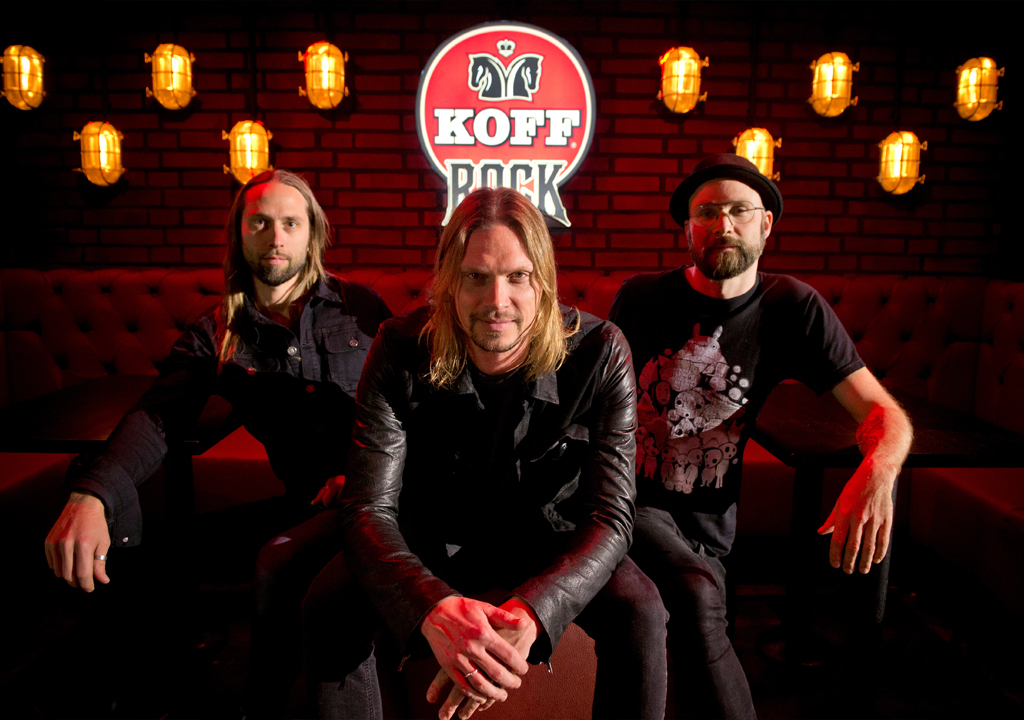
“But I can also see how Elvis and ABBA have fed into what we did. Mum and dad played them a lot,” Kie adds. “The range is so wide – from Queen to choir music. All December our mum would listen to these Christmas carols.” “And we used to listen to this American vocal group the Manhattan Transfer,” Jonne says, “as our parents were into choir music. Our parents started dating when dad joined the same choir as our mum. We think he was trying to woo her.” Today Kie is the sole family man of the group, with two small children who take up much of his downtime – as does editing the band’s videos. During time off, Jonne can be found birdwatching with friends in the Hanko peninsula, at the southernmost point of Finland. Mikko heads for his apartment in Kerala, India. He previously lived in the country for seven years, running admin at the headquarters of the spiritual leader Mata Amritanandamayi Devi, or ‘Mother Amma’ (“the hugging saint, as the British press called her,” he grins), having met her in Sweden in 1997. “Because we’re doing the band twenty-four-seven, it plays a smaller role in my life now,” he admits. “But it’s always there somehow within me, and I do my practice, I do my mantra every day and I try to visualise things. So I do practise it, but it’s not as intense as it used to be. When I go to India now it’s more about just reconnecting with the whole vibe.”
With the noted exception of Hanoi Rocks, Finnish rock acts have struggled to really crack international markets. Historically the country has been better-known for its metal, due to bands like Nightwish and Eurovision winners Lordi. “I guess this metal channel was created, ten, fifteen years ago now,” Mikko says, “and a lot of bands ended up funnelling into that same channel, finding the same supportive media core and audience.” The problem isn’t symptomatic of the Nordic countries as a whole. “Sweden has so much international success compared to Finland,” Jonne muses. “Across all genres: The Hives, The Cardigans, Opeth, The Ark, Ace Of Base, ABBA… Maybe rock in Finland struggles because historically we’ve had this specific metal association.” The lack of similar Finnish success is also linked to bureaucratic failure, the band suggest. “As a country we are lousy at marketing and networking.” Mikko laughs. “It’s a very recent thing that Finnish bands have even had managers. I remember twenty-five years ago Hanoi Rocks was the only band in Finland with a manager [Seppo Vesterinen], but he was the only one people were talking about. Slowly the middlemen started working for the bands, and the ones who have succeeded first are metal. The other genres, including rock, are slowly catching up.” Language has also proved obstructive. “The roots of Swedish are the same as English,” Kie says. “Finnish is in another bracket. And there’s a deeper cultural difference, because we’re more tied into Russian or Eastern European heritage.” “It’s true,” Mikko agrees. “In the early nineties, all the critics in Finland were saying: ‘You can’t make it big internationally because the way you pronounce English words is wrong. Everybody was condemning Finnish bands who were trying to sing in English. Even now, two days ago, I read a Finnish writer commenting on our new album: ‘This should work when they learn how to pronounce English correctly.’” Thinking back to last night’s gig, the Von Hertzens’ English has always seemed so good that it was actually surprising to hear Finnish on-stage banter. “We have some people here from overseas!” Mikko declared at one point, before sliding into some English chit-chat, concluding abruptly: “Wait a minute, why am I still speaking in English?!” The packed venue, whispered comparisons to Muse and Led Zeppelin, and even the album title New Day Rising all suggest a turning point. There was Champagne and cake backstage, as manager Virpi announced their Finnish No.1 album position, and spirits hit a tired but triumphant high. Metal and Moomins may have dominated Finland’s international image, but the thriving age of Von Hertzen rock could change that.
